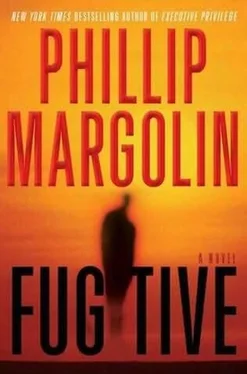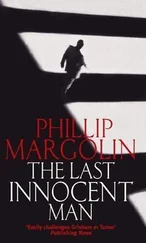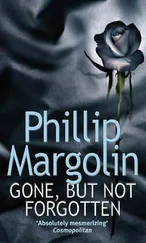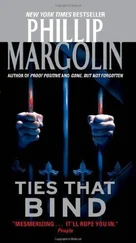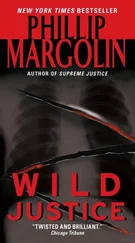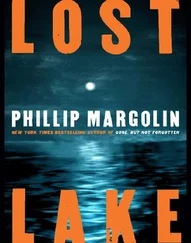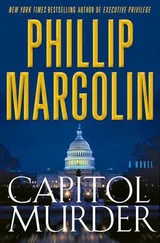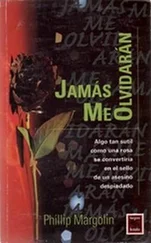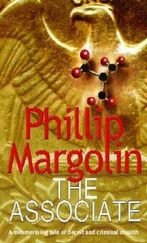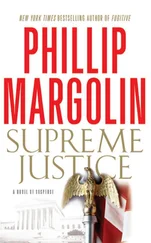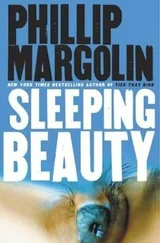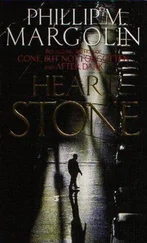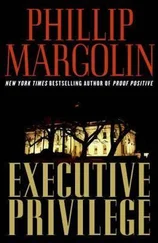“So we have Marsh in the car with the gun.”
Cross nodded.
“Where’s Marsh now?”
“My latest information is that he’s sought asylum in Batanga, which doesn’t have an extradition treaty with the United States.”
“Doesn’t a cannibal run that country?”
“So they say.”
“Okay, so we have Marsh as the shooter. Why does Burdett think Mrs. Pope is involved?”
Cross pointed at a Xerox copy of a group of photographs. “The day before he was shot, someone sent these pictures and an anonymous note to the congressman’s office. The pictures show our client and Charlie Marsh in compromising positions in her house and they show Mrs. Pope at night going into and out of the elevator that went to Marsh’s penthouse hotel suite. The note said that Sally Pope and Marsh were going to be at the Westmont on the following evening. The note was made by pasting letters cut from magazine ads onto a sheet of white paper. Sally Pope’s fingerprints are all over the paper and on some of the pasted letters. Mrs. Pope subscribes to the magazine from which the letters were cut. I think Burdett is going to argue that our client lured her husband to the club from DC so Charlie Marsh could shoot him.”
“Do we know where the paper is from?”
“Similar paper was found during a search of the Pope residence.”
Frank studied the pictures of Marsh and his client in flagrante. He looked troubled for a moment. Then he brightened.
“Someone took the pictures of Marsh and our client making out. Find the photographer, Herb. He’s the key to this case.”
“Do you have any idea who might have hired the photographer if it wasn’t our client?”
“I’ll ask her for ideas, but the obvious suspect is Arnold Pope Sr.”
Frank told his investigator about Senior’s relationship with Junior and his daughter-in-law.
“Do you know-off the top of your head-what law firm Senior uses for his legal work?” Cross asked.
“I think it’s Reed, Briggs. Why?”
“Investigators who do surveillance work are a special breed. They’re usually loners who earn a living by spending eight to twelve hours a day with their camera staking out workmen’s comp claimants or plaintiffs in personal injury cases to see if they can catch them malingering. They’re frequently social misfits who can’t take regular office work. They don’t like routines or bosses looking over their shoulder. Firms don’t carry these guys on their payroll like they do in-house investigators, but they have a list of people they’ll contract with for odd jobs when the need arises. If Arnold Sr. hired the photographer he may have gotten the name from someone at Reed, Briggs.”
“Get on it, then. If we can prove that Senior hired the person who took the photos we’ll tear a huge hole in the state’s case. Have you found anything else that could cause us problems?”
“I’m not certain. There are two witnesses listed on the indictment who don’t match up with a police report.”
“Who are they?”
“Otto Jarvis and Anthony Rose.”
Frank frowned. “I don’t recognize Rose. I’ll ask Mrs. Pope if she knows him. Jarvis is a lawyer.”
“Is he with a big firm?”
“No, he’s a bottom-feeder. He does court-appointed criminal cases, but nothing big. Misdemeanors, shoplifts, drunk drives. I’ve heard that he does a lot of divorce work. If I’m not mistaken, he’s had a few problems with the bar, so check to see if he’s had ethics complaints filed against him.”
“Will do. Should I see if he’s connected with Senior? Maybe he’s the one who set him up with the photographer.”
“That’s a good idea,” Frank said. Then he went quiet. When he spoke again he looked worried.
“What concerns me, Herb, is the absence of a police report for these two witnesses. That usually means a DA is setting up a surprise, and I don’t like surprises when I’m in trial.”
As Highway 26 heads west from Portland toward the Pacific Ocean, the urban landscape gives way quickly to suburban shopping malls and green spaces dominated by sprawling, glass-and-chrome office complexes housing high-tech companies. Frank Jaffe was already in farm country when he took the exit to Hillsboro twenty minutes after leaving the city.
Frank looked forward to the drive to and from the courthouse during the trial, because he was alone with Sally Pope. Much of the time, Frank discussed trial strategy or gave Sally his impressions of the way the trial was going, but sometimes they talked about things that had nothing to do with the law, and those were the times Frank treasured the most. He knew the ethics rules prohibited him from having a romantic relationship with a client, but spending an hour a day alone with Sally was the next best thing.
If Frank had to use one word to describe Sally Pope’s demeanor during her trial, it would be “composed.” It would definitely not be “serene,” because Frank knew that there were times when she was boiling mad, but Sally never let anyone but Frank see this side of her and she only let her emotions show in the privacy of Frank’s office or in his car.
The grayish white, neoclassical Washington County courthouse took up a block on the outskirts of city center in Hillsboro. Each morning, when they arrived for court, reporters hurled questions at Frank and his client as he escorted Sally between the fluted columns at the main entrance. And each day they ignored the press and hurried up the stairs to the courtroom of the Honorable Dagmar Hansen in which Mrs. Pope’s future was being decided.
Judge Hansen, a dirty-blond, cigarette-smoking hard case in her mid-forties, had made her bones defending insurance companies. She was a political conservative who was very smart and tried to be fair. The judge had made enough money in private practice to be immune to a bribe and she had enough integrity to stand up to a bully. Frank was confident that Arnold Pope Sr. would not be able to get to her.
The courtroom was packed from the first day, and seated directly behind the prosecution table every minute court was in session was Arnold Pope Sr. Sally made a point of ignoring her father-in-law and the hateful stare he directed at her every time she passed him.
It took a week to pick a jury, because of the publicity the case had received. As soon as the jurors were sworn, Karl Burdett gave an opening statement in which he claimed that the evidence would show the defendant had designs on her husband’s money from the start and had tricked him into marriage by getting pregnant. The DA displayed a sample of the photographs the congressman had received the day before he died. Then he argued they were the bait the defendant used to lure Junior to his death so she could inherit millions from his estate and collect additional millions from the insurance policy on the congressman’s life. During his harangue, Burdett referred to Sally Pope as a gold digger, a black widow, a harlot, and a harridan. Frank wondered if the DA had assigned a deputy to make a list of every derogatory term that could be used to describe a woman.
Frank’s opening statement was brief, dwelling on each juror’s obligation to wait until all of the evidence was in before drawing any conclusions about guilt or innocence and their obligation to acquit if the prosecution did not prove its case beyond a reasonable doubt.
As soon as court adjourned, Frank summoned Amanda from the back of the courtroom and introduced her to Sally. Frank had urged his daughter to enjoy her summer break by hanging out with her friends, but Amanda was a courtroom junkie who planned to go to law school after college, then practice criminal law, like her dad. There was no way Frank could talk her out of sitting in on the biggest case of his career.
Читать дальше
